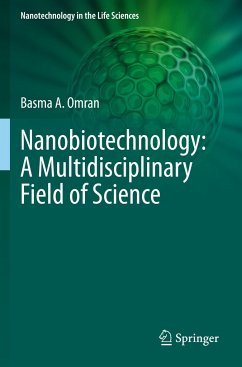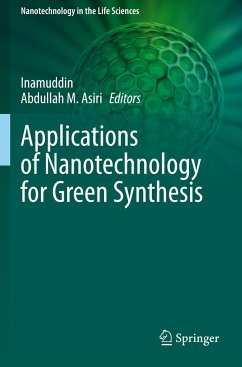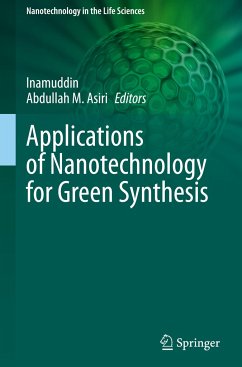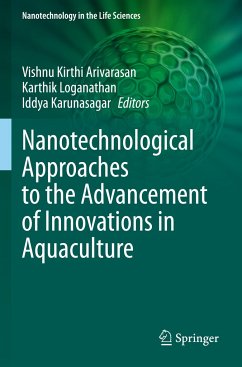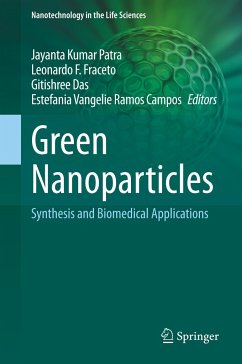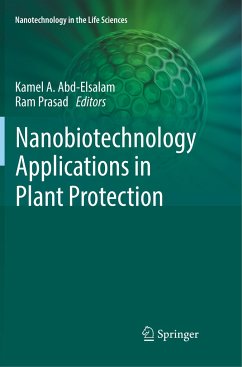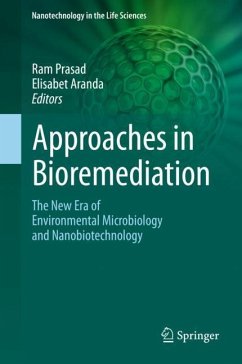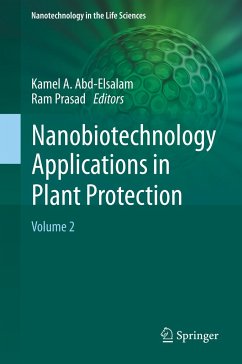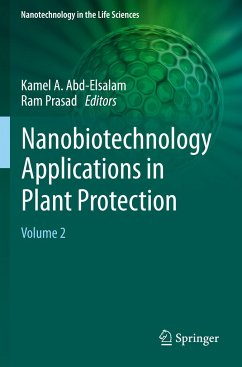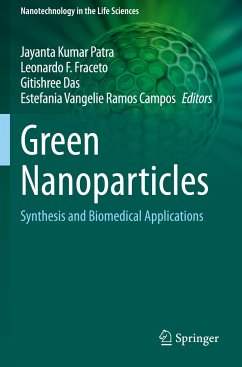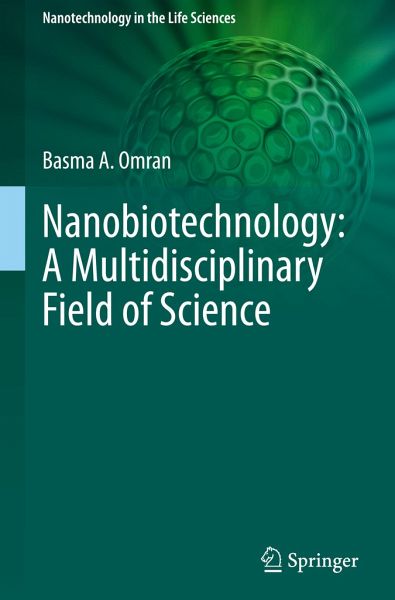
Nanobiotechnology: A Multidisciplinary Field of Science
Versandkostenfrei!
Versandfertig in 6-10 Tagen
129,99 €
inkl. MwSt.
Weitere Ausgaben:

PAYBACK Punkte
65 °P sammeln!
The generation of well-defined nanoparticles of excellent size and shape involves physical and chemical methodologies that are complicated, expensive, and produce hazardous toxic waste that is harmful to the environment and to human health. In order to combat the disadvantages of these methods, scientists have created "the biological method," a new synthetic methodology that serves as a proper alternative to physical and chemical methodologies because of its easy utility, low cost, rapid synthesis, controlled size characteristics, controlled toxicity, and eco-friendliness.Nanobiotechnology is ...
The generation of well-defined nanoparticles of excellent size and shape involves physical and chemical methodologies that are complicated, expensive, and produce hazardous toxic waste that is harmful to the environment and to human health. In order to combat the disadvantages of these methods, scientists have created "the biological method," a new synthetic methodology that serves as a proper alternative to physical and chemical methodologies because of its easy utility, low cost, rapid synthesis, controlled size characteristics, controlled toxicity, and eco-friendliness.
Nanobiotechnology is the science in which living matter can be manipulated and exploited to produce materials within the nano-scale. It is a multidisciplinary field of science framed by biology, chemistry, engineering, materials, and life sciences. Different biological entities can be exploited to yield biologically synthesized nanomaterials including bacteria, actinomycetes, yeast, fungi, viruses, algae, plant extracts, and agro-industrial waste extracts.
This book represents a comprehensive review concerning the state of the art in nanobiotechnology, emphasizing the use of diverse biological entities in the science, and its versatile applications. It describes currently existing methodology with the latest published references, and provides safety information. It serves as the ideal guide for scientists interested in exploring nanobiotechnology.
Nanobiotechnology is the science in which living matter can be manipulated and exploited to produce materials within the nano-scale. It is a multidisciplinary field of science framed by biology, chemistry, engineering, materials, and life sciences. Different biological entities can be exploited to yield biologically synthesized nanomaterials including bacteria, actinomycetes, yeast, fungi, viruses, algae, plant extracts, and agro-industrial waste extracts.
This book represents a comprehensive review concerning the state of the art in nanobiotechnology, emphasizing the use of diverse biological entities in the science, and its versatile applications. It describes currently existing methodology with the latest published references, and provides safety information. It serves as the ideal guide for scientists interested in exploring nanobiotechnology.





